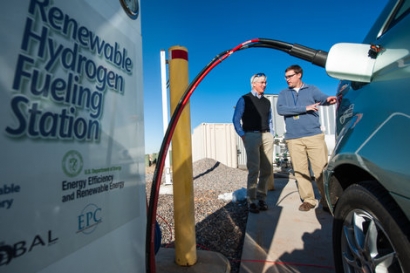
The project will undoubtedly help Sweden’s aim to have a fossil-independent vehicle fleet in 2030, fossil-free power generation in 2040, and a climate neutral society in 2045. The new facility will be built in Luleå, Sweden. To extend the scope of the tests that can be done, infrastructure and skills from other parts of RISE and Swerim can be integrated. An example is the testbed for development of biofuels and biochemicals at RISE ETC in Piteå.
Renewable hydrogen from electrolysis has the potential to play an important role in a future energy system and help Sweden and other countries to switch to renewable power generation, climate-neutral industries and a climate-neutral society. This is illustrated not least by the cross sectorial industry project HYBRIT.
“The testbed will be an open and neutral arena where you can evaluate and demonstrate both single components and entire value chains for a wide range of different hydrogen applications” said project coordinator Anna-Karin Jannasch, RISE. “This may include energy storage, production of biofuels and green chemicals or hydrogen applications in the metallurgical industry. Equally important as the physical testbed is the competence center for hydrogen technologies that we now create”.
Lawrence Hooey, project manager at Swerim, added that the establishment of the testbed provides a unique opportunity to accelerate the development and deployment of hydrogen technology across multiple industries and in society. Swerim and RISE, together with stakeholders from industry and the public sector, can create critical mass to support development and enable the expansion of existing testbeds and services to meet industry needs.
The testbed is being developed in cooperation with a working group consisting of around twenty stakeholders and future testbed users, including Hybrit, Höganäs, Sandvik, Perstorp, AkzoNobel Specialty Chemicals, Haldor Topsoe and Hydrogenics Pro.
For additional information:

